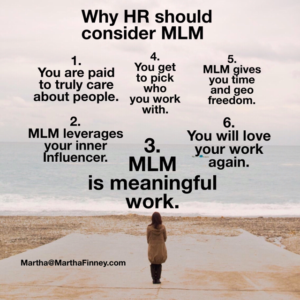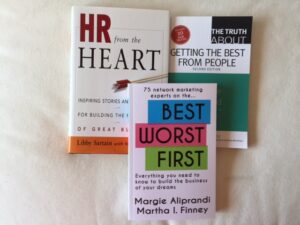We are now about halfway through the Great Retirement Bubble for the HR profession. Just as Baby Boomers  were flooding the HR profession in the 1960s and 1970s, we are now flooding the retirement phase of our lives. And, in about 15 years, the Gen Xers will be right behind us.
were flooding the HR profession in the 1960s and 1970s, we are now flooding the retirement phase of our lives. And, in about 15 years, the Gen Xers will be right behind us.
But most of us aren’t ready to retire. We don’t want to. We have way too much energy, hard-earned wisdom, and professional value stored up that we still want to activate. We’re not ready to box up our business books and shove them away in the attic to be ultimately thrown away after the funeral. We still want to be a part of things. We still want to go to the conventions. We still want people to ask us for our advice, counsel, and opinions. We still want to be able to say, “You know, I have this idea for you….” We still want our phone to ring.
So what do we do? We go into consulting. Just like everyone else in our city, state, region who is retiring and wondering, “what next?” But how many comp and ben consultants does the world really need? And there comes a time when you’ve been out of the scene long enough when you realize, “You know what? I really can’t get excited about comp and ben anymore.” Certainly not so excited to be able to compete effectively with the younger waves of HR hi-po’s with more current knowledge on comp and ben. Still you’re not ready to retire fully yet.
 In the last 35 years that I’ve dedicated my career to HR journalism, and writing about world-class HR practices and career paths, I have always been an advocate for the HR heart. Among the projects I will always be grateful to have been a part of was the book HR From the Heart, which I co-authored with one of HR’s most enduring and endearing thought leaders, Libby Sartain. So, while I’ve never practiced HR myself, I’ve been watching from the front row – your biggest fan and advocate. And now, at 59, I’m thinking about my own retirement, as well as yours.
In the last 35 years that I’ve dedicated my career to HR journalism, and writing about world-class HR practices and career paths, I have always been an advocate for the HR heart. Among the projects I will always be grateful to have been a part of was the book HR From the Heart, which I co-authored with one of HR’s most enduring and endearing thought leaders, Libby Sartain. So, while I’ve never practiced HR myself, I’ve been watching from the front row – your biggest fan and advocate. And now, at 59, I’m thinking about my own retirement, as well as yours.
How do we take all this accumulated knowledge and still burning passion for the people side of business and turn it into something else? Something maybe better, even? What are our transferrable skills and where can we invest them to continue to have relevance, significance, wealth-building, and mind-blowing meaning?
I have found at least one answer that makes me very happy when I consider the possibilities. Network marketing – or multi-level marketing (MLM).
Bear with me for a moment. If you’re like me, you have said “Yeah, I don’t think so,” at least once in your career when someone said, “Will you take a look at this?” (Me: four times.) But like the HR profession, MLM has profoundly changed in the last 30 years, especially the last decade or so. Just like people who don’t pay attention to HR still think of it in terms of the 1970s (you know what I’m talking about), people who haven’t paid attention to MLM have it locked away in old, outdated concepts that were very real then. Not so much now.
Robert Kiyosaki (author of Rich Dad, Poor Dad) has called MLM the “Business of the 21st Century.” The following realities of today’s employment world are environmental facts of life that make MLM a perfect solution for the need for more income, time freedom, flexibility, and independence:
- Changing demographics,
- The job market and economy,
- The demise of the social contract and the increasing understanding that there’s no such thing as job security,
- The introduction of easily and cheaply available Internet-based technology,
- And a growing acceptance of portfolio careers and an untethering from the physical workplace.
But I’d like to take it one step more specific to the HR profession and invite you to consider this business model from the perspective of the skills you already have installed in your professional bucket. With an open-minded revisit of the business model, you may discover MLM to be perfect for you…and you’re perfect for it. Or not. It’s up to you. But only a fresh, updated, and knowledgeable reconsideration will help you decide.
MLM compensates you for truly caring about people: It seems that part of a lifelong career in HR is the process of detaching your heart for humanity from your ever-maturing professionalism. A life in HR has a way of doing that to you. And before long, you’re choking back the words to a younger colleague, “Oh you got into HR because you’re a people person? Well, give it a few years.” You remember how those words broke your heart when you were young. And you promised yourself you wouldn’t say something similar to future newbies. But there they are…those words on the tip of your tongue.
process of detaching your heart for humanity from your ever-maturing professionalism. A life in HR has a way of doing that to you. And before long, you’re choking back the words to a younger colleague, “Oh you got into HR because you’re a people person? Well, give it a few years.” You remember how those words broke your heart when you were young. And you promised yourself you wouldn’t say something similar to future newbies. But there they are…those words on the tip of your tongue.
MLM is your chance to get that people passion back. With MLM you’re rewarded for helping others. Period. The opportunities for both you and your people are limited only by the commitment and work you’re willing to invest. Everyone can succeed without taking away from anyone else. There are no right-sizing, top grading, downsizing, laying off, bell curves, diversity quotas, siloed job descriptions, disparate impact second-thinking, organizational politics.
You answer to only the hearts of your people. You are there to serve them, to help them achieve their goals by reminding them of their own potential to expand and achieve. It’s employee engagement beyond anything that the big consulting firms can even begin to dream of.
MLM leverages your inner Influencer. You know that HR’s power never lies in command and control. It lies in the ability to influence – no matter whether you’re talking to the individual contributor or the denizens of the C Suite. You have developed the talent for listening for your people’s needs and motivations, and then presenting your programs, projects and concerns in a way that best appeals to your people’s driving self-interests. You know that your effectiveness comes from communicating, inspiring, and influencing accordingly.
With MLM, you might say, “Yeah, but I’m not a salesperson. I can’t see myself getting excited about promoting a product.” Talk to your best corporate salespeople and they’ll say exactly the same thing. They will tell you that they are consultants helping their clients arrive at solutions that help them solve their problems and achieve their goals.
That is where the power of influence lies. And that’s a skill that you have honed exquisitely throughout your years in HR. Here’s a great new way to use it.
And then the next step is to teach. Which is also something you’ve been doing for years already. You’ve got this.
 MLM gives you that opportunity for meaningful work that you have been craving. As you advanced through your HR career, your mandate has been increasingly about serving corporate strategy. Depending on your company and your CEO, you may have been forced to leave the humanity part of your work by the side of the road. And you’ve come to discover that the soul-satisfying aspect of your work has gradually disappeared as well.
MLM gives you that opportunity for meaningful work that you have been craving. As you advanced through your HR career, your mandate has been increasingly about serving corporate strategy. Depending on your company and your CEO, you may have been forced to leave the humanity part of your work by the side of the road. And you’ve come to discover that the soul-satisfying aspect of your work has gradually disappeared as well.
MLM gives you the chance to do what you might have entered HR to do in the first place: Change lives for the better. With MLM you’re no longer playing go-between in turf wars, sending bad-news letters disappointing hopeful candidates, telling the CEO that he can’t do that (whatever it is this week), balancing the latest regulation coming down from the state or DC with the company’s need to build a bench strength of qualified talent; firing the slackers.
Now you are providing solutions and extending hope to anyone and everyone who sees the opportunity and says, “I get this. I’m doing this. How soon can I start?” Single parents who want to stay at home with their children. Professionals who have suddenly discovered that they are so ready for something else – like residual income that will keep paying them monthly long after they stopped doing the work. Veterans and their spouses who are rebuilding their civilian lives.
Newly arrived immigrants who are eligible to work but whose poor language skills prevent them from entering the workforce at a level they deserve. Parents who are determined to pay for their childrens’ college education themselves, but who need that extra income beyond their salaries to boost their savings. Baby Boomers who have discovered that oops! they’re 63 and forgot to save for retirement. Senior HR professionals who want to build a meaningful, challenging, and rewarding Chapter 2 in their professional lives.
Readers who have followed my writing know that I describe meaning at work according to three primary categories: Meaningful work relieves pain, restores hope, and/or brings beauty to the world. MLM does all three.
With MLM, you get to work with the people you want to work with. You pick and choose your teammates without anyone second-guessing your selection. You’re not stuck with having to play nice with obnoxious co-workers that someone else hired and assigned to sit in the office next to you. You are building a team of hand-picked colleagues, who are hand-picking their colleagues, and so on and so on.
You can also strategically build your teams exactly the way you want to. One division (or “leg”) of my organization, for instance, is dedicated to building a community of HR professionals who support each other as they build their teams. Another leg is filled with passionate horse people. I’m developing another for veterans and their families. Yet another for dancers. And another for motorcycle enthusiasts.
With MLM, the nitty gritty of business functions are taken care of for you. With MLM you are compensated for teaching, inspiring, recruiting, leading, caring, sharing, coaching, organizational development, and authentically being there to serve your people. All those things you’re doing in HR now. Or at least would like to be doing.
But go off on your own and you’re now personally responsible for those other aspects of running a successful organization. Marketing. Advertising. Research and development. Inventory control and fulfillment. Bookkeeping. Invoicing. Corporate strategy. Employment and management of support staff. All that paperwork.
With MLM all those services are done for you. You have all the advantages of being associated with a world-class corporation and staff (assuming you choose your company wisely), without having to shoulder the hassle of overhead. Or spend your precious days doing the tasks of business management that you never liked to begin with. And with the business model that rewards you for building and cultivating a large organization of self-directed MLMers just like you, you have the benefits of leveraged efforts that you enjoy with a self-directed, motivated staff, without the headaches, risks, and exposures of being an employer.
From an organizational point of view, it is truly the best of all worlds. Entrepreneurs intuitively get this. But I think that only people who are HR professionals can fully grasp exactly how fabulous that really is.
MLM gives you the time and geographical freedom to do what is most important to you.  Catherine Carr is a HR senior leader who left the corporate world to join a humanitarian NGO and dedicate her professional expertise to disaster-struck locations all over the world. If it’s in the headlines, she’s already there, setting up the infrastructure in advance of emergency medical teams who are on their way any minute now.
Catherine Carr is a HR senior leader who left the corporate world to join a humanitarian NGO and dedicate her professional expertise to disaster-struck locations all over the world. If it’s in the headlines, she’s already there, setting up the infrastructure in advance of emergency medical teams who are on their way any minute now.
Strictly speaking, it’s not a volunteer position, but it’s not a wealth-building career path either. While on leave from her work with her NGO this year, she decided to begin an MLM enterprise. This way she can accept assignments again when she’s ready to go back into the field, fully confident that her team will continue building her enterprise in her absence. She has the best of both worlds: Meaningful work in the field, and a meaningful business at home that sets her up for a well-deserved retirement when that time comes.
The system is there for her, designed precisely in this way that will release her to do what calls her to do most powerfully.
With MLM you can like who you see in the mirror again. In any corporate role in a conventional business, you will be forced to do things now and then that just don’t sit right with your soul. HR is especially at risk for this. You carry around secrets and strategies that will have impacts on lives – some of them truly terrible impacts. When you jockey for promotion, you do it with the knowledge that your advancement means someone else won’t get the opportunity. You’re forced to deliver bad news that you don’t believe in because the senior executives don’t have the guts to do it themselves. You casually eat lunch with trusting colleagues who have no clue that inside three months they will be gone with a mediocre severance package. You’re constantly having to watch your back because you know that with a moment’s distraction, someone might be eating your lunch. That’s just tiring.
Deborah Granite, who was once a successful – but soul-tired -- owner of a media production company, said that the happy surprise of network marketing came when she enrolled with skin-care company Rodan + Fields and discovered that she was able to “leave the office barracuda at the door.” Today she is a far more successful executive representing Rodan + Fields to hundreds of women seeking to change their lives and fortunes with their association with the right company.
With MLM your tasks include encouraging, incentivizing, inspiring, supporting, coaching, empowering, truth-telling. There is no intimidating, prevaricating, threatening, jockeying for position at the expense of anyone else, politicking, enforcing. If there is, you’re doing it wrong.
With MLM you can build your business along side your full-time career and retirement activities. While I personally know people who changed their lives inside of a year (would a 12-month income growth from $26,000 a year to $230,000 be an interesting increase trajectory?), for most people it takes three to five years to establish a solid, grounded MLM business that is set to generate eye-popping residual income that you can one day will to your descendants. So you will need to factor in some ramp up time. Showing the business to two people a day on a consistent basis is one way to do it, which is how my friend turned $26,000 salary into $230,000 freedom. Or you can dedicate regular daily hours to your enterprise. I know one couple – she a prosecuting attorney, he an undercover drug investigator – who duplicated their combined income in 18 months by dedicating two hours a night to their business after they put their son to bed. Now they live full-time in a Canadian ski resort.
“But what will people say about me?” In earlier decades, professionals stop themselves when considering this business opportunity because of the perceived stigma around network marketing. But more recently there are enough former business executives who run their businesses like a business, you will have plenty of role models to show you that it can be done with executive demeanor.
Your posture, calm dignity, unhurried confidence, genuine kindness, authentic smile will signal to people who you are and what to say about you. What people started saying to me inside three months of my taking on MLM as an income stream: “You are looking so happy. What’s going on?”
As much as MLM may be a great match for you, you’re also great for the profession. You bring to the table world-class abilities in training, organizational development, talent management, team building, culture building, leadership behaviors – all those elements of executive skills that will serve to keep MLM as a profession moving on its own path toward the future. This could be the most influential work you will ever do.
If you have come this far in this article and you are still thinking to yourself, “Yeah but, we’re talking about network marketing. Really? Network marketing? Really?????” consider this:
While the HR world was focused on transforming itself from personnel to HR professional, the profession of network marketing has also been transforming itself.
As you’re considering your future, and how you want to live out the rest of your working years, network marketing truly is worth a second look. Even if that second look is your eighth look. Maybe now is the time when it will be right for you to say yes.
Or not. No pressure.
